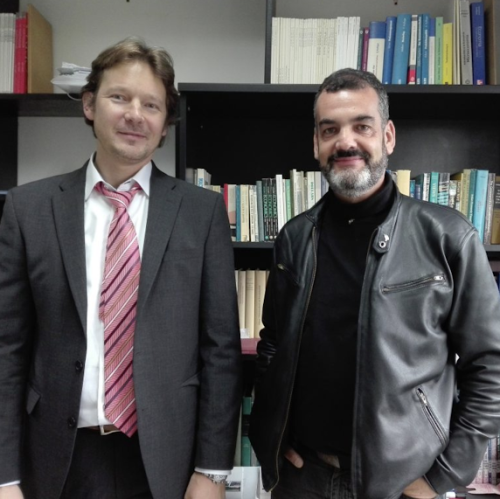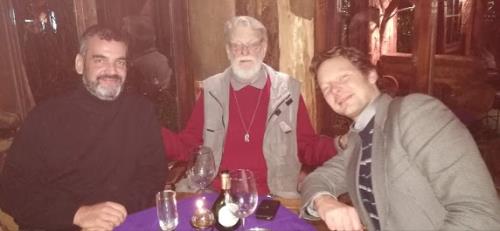

Franz Gatzweiler presented the Urban Health and Wellbeing Programme at Universidad Austral de Chile, at the Institute of Economics, whose Director is Prof. Felix Fuders.


Franz Gatzweiler (left), Manfred Max-Neef (middle), Felix Fuders (right)
1982, Manfred Max-Neef won the Right Livelihood Award for his work in poverty-stricken areas of developing countries.

The Institute of Economics on the campus of Universidad Austral de Chile in Valdivia, Chile
From Wikipedia:
Fundamental human needs and human-scale development framework, developed by Manfred Max-Neef and others are seen as ontological, are few, finite and classifiable (as distinct from the conventional notion of conventional economic "wants" that are infinite and insatiable). They are also constant through all human cultures and across historical time periods. What changes over time and between cultures is the strategies by which these needs are satisfied. Human needs can be understood as a system, i.e. they are interrelated and interactive. In this system, there is no hierarchy of needs (apart from the basic need for subsistence or survival) as postulated by Western psychologists such as Maslow, rather, simultaneity, complementarity and trade-offs are features of the process of needs satisfaction. Manfred Max-Neef and his colleagues developed a taxonomy of human needs and a process by which communities can identify their "wealths" and "poverties" according to how their fundamental human needs are satisfied. See his book on Human Scale Development.